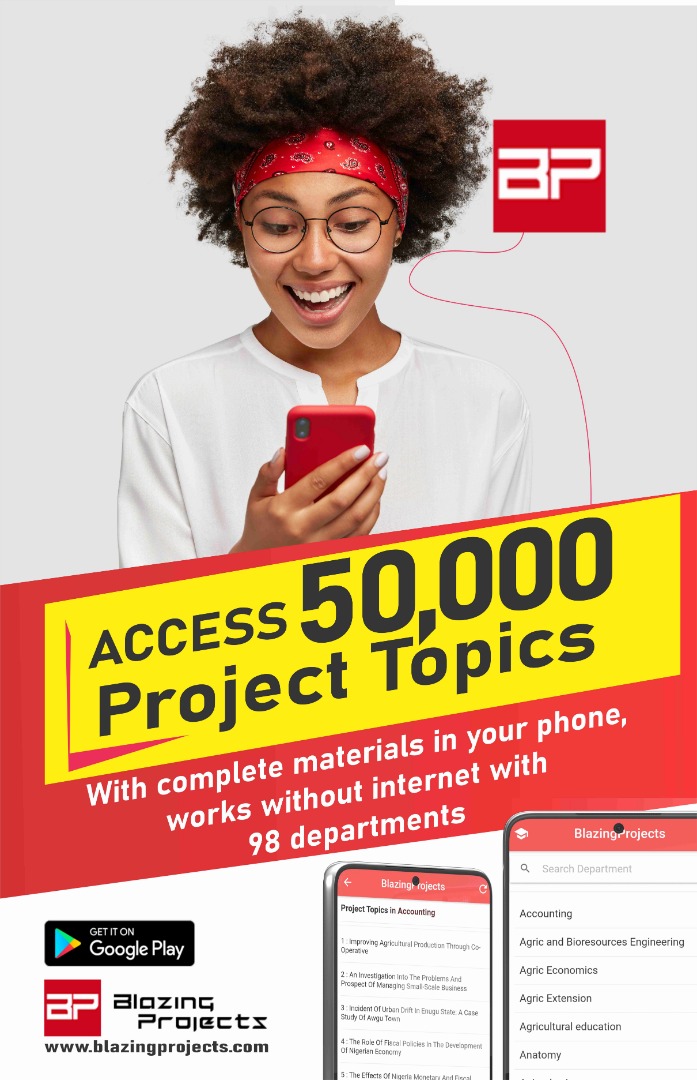
Table of Contents
Chapter One: Introduction
1.1 Background of the Study
1.2 Statement of the Problem
1.3 Objectives of the Study
1.4 Research Questions
1.5 Hypotheses
1.6 Significance of the Study
1.7 Limitations of the Study
1.8 Scope of the Study
Chapter Two: Literature Review
2.1 Concept of Waste Management
2.2 Importance of Effective Waste Management Practices
2.3 Waste Management Practices in Educational Institutions
2.4 Previous Studies on Waste Management in University Campuses
2.5 Gaps in Literature
Chapter Three: Research Methodology
3.1 Research Design
3.2 Population and Sample
3.3 Data Collection Methods
3.4 Data Analysis Techniques
Chapter Four: Discussion of Findings
4.1 Overview of the University’s Waste Management Practices
4.2 Analysis of Waste Management Effectiveness
4.3 Comparison with Best Practices
4.4 Recommendations for Improvement
Chapter Five: Conclusion and Summary
5.1 Summary of Findings
5.2 Implications of the Study
5.3 Recommendations for Future Research
5.4 Conclusion
Project Summary
The aim of this final year project is to assess the effectiveness of waste management practices on university campuses, specifically focusing on our university as a case study. The study seeks to address the current waste management practices in place at the university, evaluate their effectiveness, and provide recommendations for improvement.
In Chapter One, the introduction provides background information on waste management practices in educational institutions and sets out the objectives, research questions, and significance of the study. The limitations and scope of the study are also discussed to provide a clear framework for the research.
Chapter Two presents a comprehensive review of the literature on waste management, highlighting the importance of effective practices and exploring previous studies on waste management in university campuses. The chapter also identifies gaps in the existing literature that this study aims to address.
Chapter Three outlines the research methodology, including the research design, population and sample, data collection methods, and data analysis techniques. This chapter provides a detailed overview of how the study will be conducted and how data will be collected and analyzed.
In Chapter Four, the discussion of findings section presents an analysis of the university’s current waste management practices, evaluating their effectiveness and comparing them to best practices in the field. The chapter also includes recommendations for improvement based on the study’s findings.
Chapter Five concludes the project with a summary of the findings, implications of the study, recommendations for future research, and a final conclusion. The chapter ties together the key findings of the study and offers insights for potential further research in the field of waste management on university campuses.
Purchase Detail
Download the complete project materials to this project with Abstract, Chapters 1 – 5, References and Appendix (Questionaire, Charts, etc), Click Here , to place an order via whatsapp. Got question or enquiry; Click here to chat us up via Whatsapp.
You can also call 08111770269 or +2348059541956 to place an order or use the whatsapp button below to chat us up.
Bank details are stated below.
Bank: UBA
Account No: 1021412898
Account Name: Starnet Innovations Limited
The Blazingprojects Mobile App

Download and install the Blazingprojects Mobile App from Google Play to enjoy over 50,000 project topics and materials from 73 departments, completely offline (no internet needed) with monthly update to topics, click here to install.